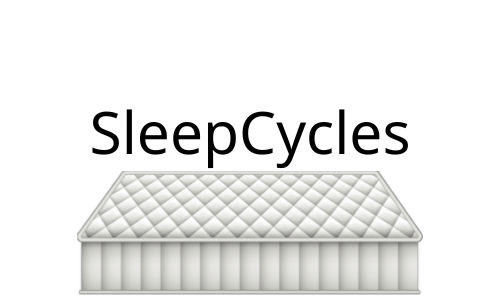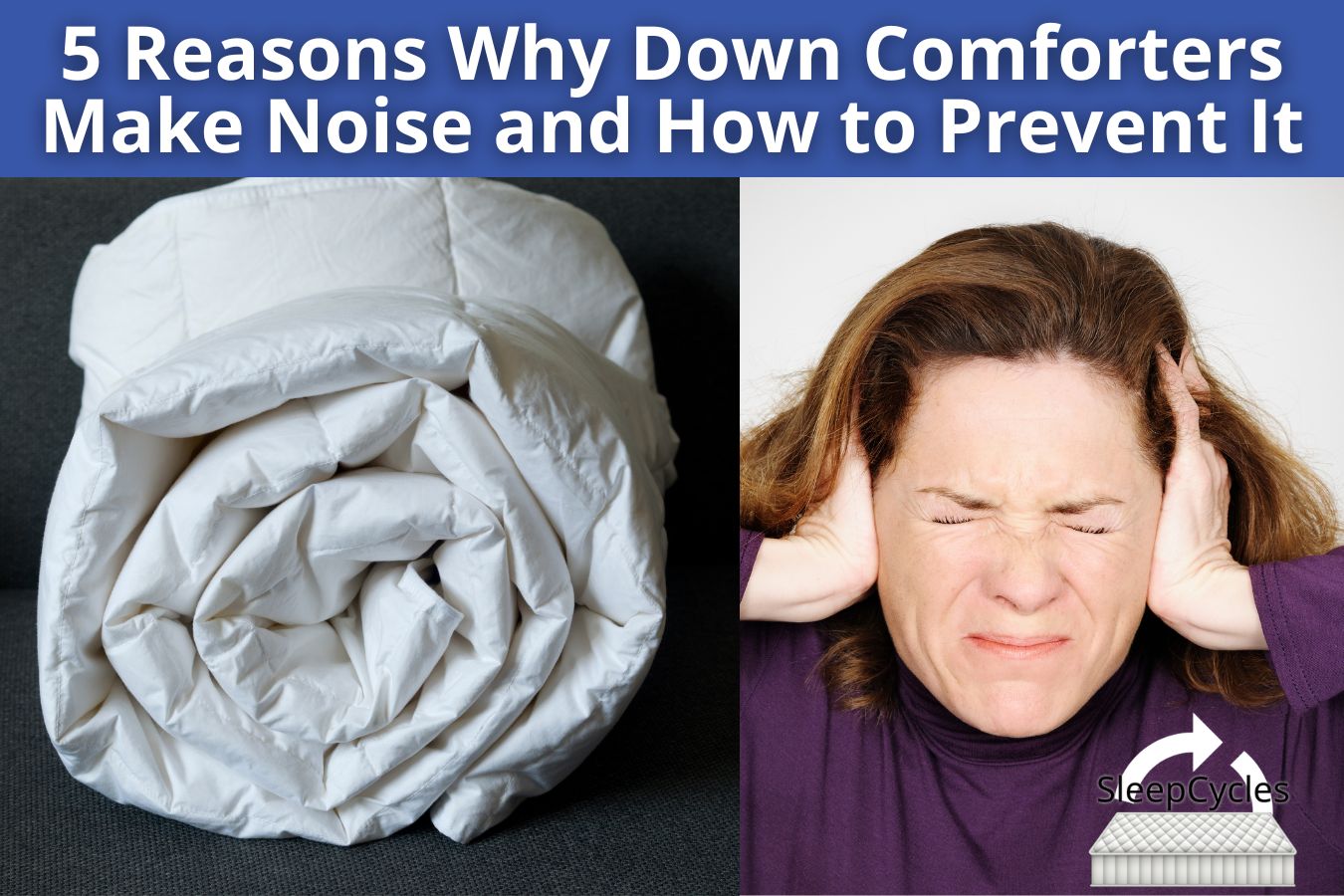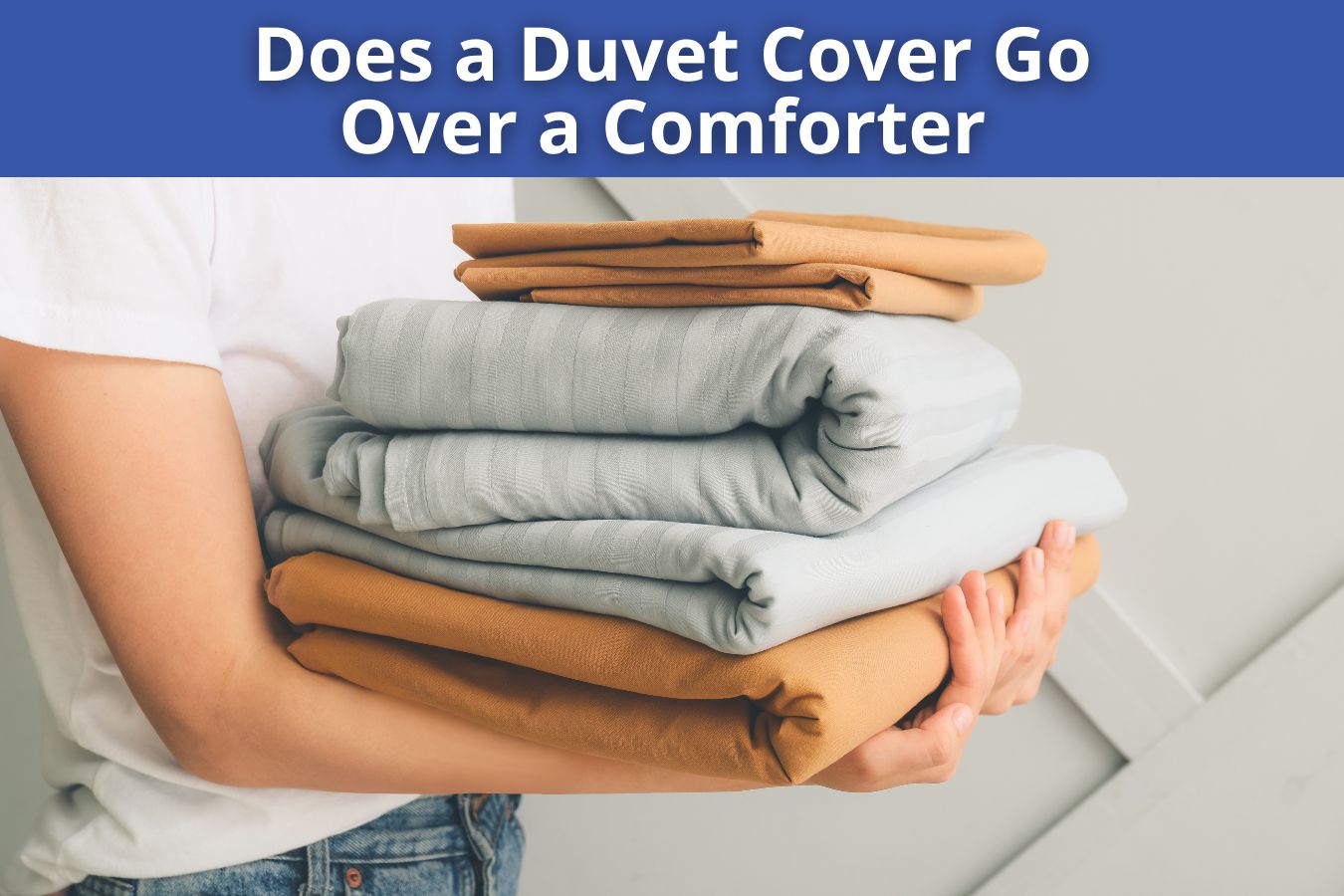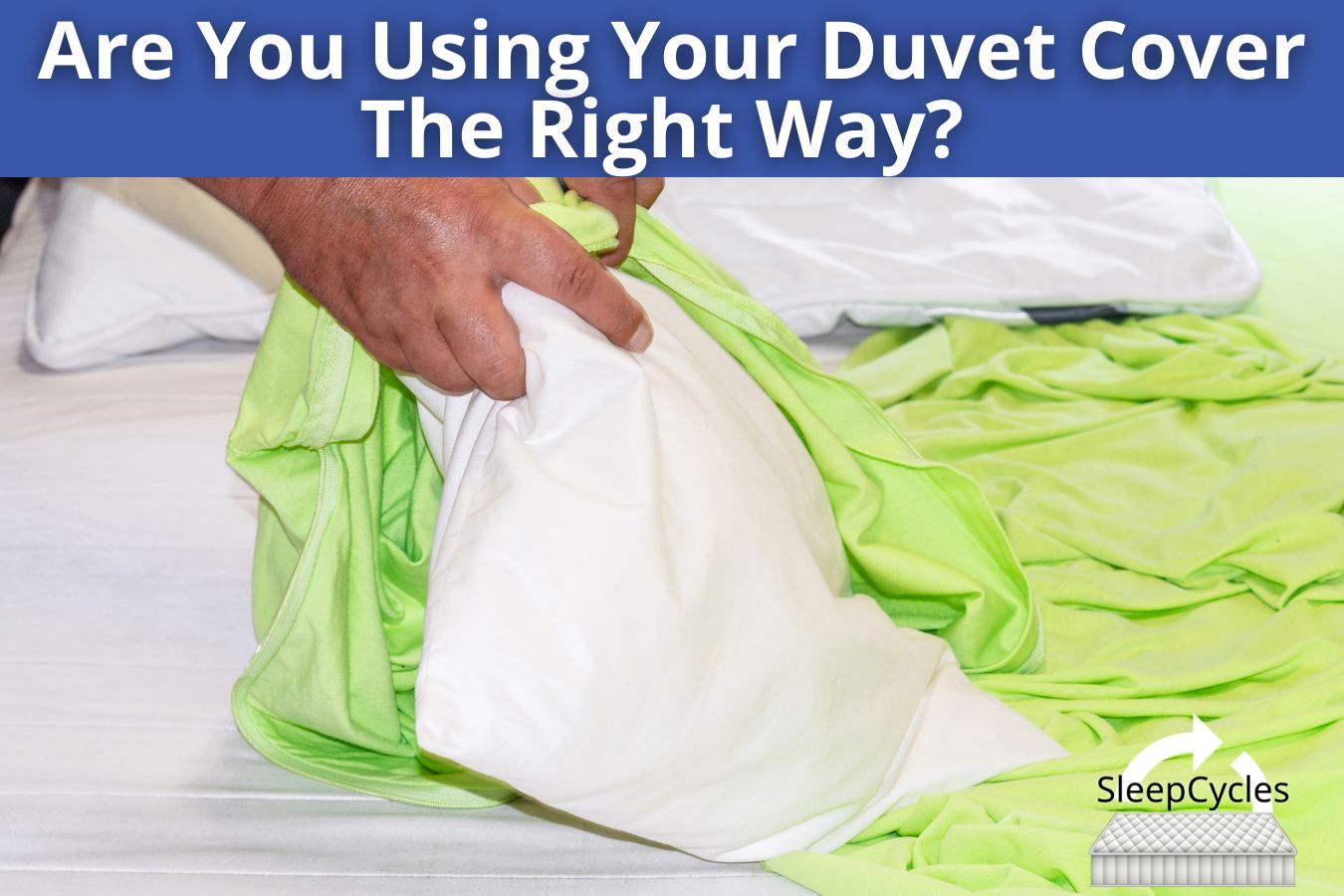After moving out of my parents and getting a new place, I had to purchase a lot of stuff and among them was a new down comforter. There’s this weirdly satisfying feeling I get whenever I purchase something new (you call me childish) and the feeling was in full blast after purchasing my down comforter, the thought of it being without stain, and fluffy with nice down, made me eager to go to sleep.
When I took it out of the pack, I heard a weird and annoying noise, and this noise continued while I was trying to lay the down comforter on my bed and even when I wrapped it around me while sleeping. Why do down comforters make noise? This noise is caused by several reasons including the material used to wrap the down.
Reasons Why Comforters Make Noise
The Type Of Material Used To Cover The Down
Down comforters made with stiff high-quality cotton material may produce noises due to the nature of the material. High-quality cotton materials are good for covering down because they are absorbent, breathable, hypoallergenic, biodegradable, and have high wet modulus (stronger when wet), but when new, they produce slight noise when your comforter is moved.
The Tightness Of The Weave Used To Sew The Comforter
If your comforter is sewn with a very tight weave, this can make the comforter puffed up or prevent air from escaping from between the down. The more puffed up and air-filled a comforter is, the more sound it makes.
Presence Or Absence Of A Protective Coating
The protective or waterproof coating is important when used to wrap comforters because the covers reduce risk and protect the down from all liquid stains as well as dust mites, bed bugs, and bacterial growth ( which is a major cause of asthma, eczema, and rhinitis), this waterproof material is made with two layers of polymer which tend to make noise especially when they have not been used.
Comforters Made With Synthetic Fabrics
Synthetic fabrics eg microgel are used to make comforters since they are more durable, not biodegradable, and non-susceptible to larval insect infestation because they are not a good food source for them, unlike natural fibers for example cotton, which is a good food source for insects. These synthetic fibers are also made from polymers, thus making them non-biodegradable and water-resistant, and they also tend to make noise when newly purchased.
Trapped Moisture In The Comforter
Older comforters might trap moisture within them, this will cause the filling to clump and may lead to slight sounds when trying to lay the comforter or when it is in use.
How To Prevent / Stop Your Comforter From Making Noise
A sure way that’s going to stop your comforter from making noise is to use it and give it time to soften on its own, thus stopping the noise. When you keep using your comforter, with time the material used to cover the down or any other comforter material will soften and it will stop making the noise. If you can’t tolerate the sound, here are a few ways you can stop your comforter from making noise.
Taking Your Comforter For Dry Cleaning
When you take your comforter for dry cleaning, the dry cleaning chemicals used to wash and treat the comforter help to soften the material and get rid of the noise, although this is a good method, you’ll have to spend some money.
Add Fabric Softener When Washing The Comforter.
Adding bicarbonate of soda ( baking soda ) or vinegar to your comforter when washing will soften it considerably.
- Place the comforter in your washer, if the comforter is too large for your washer, you should take it to a commercial self-service laundry where you can make use of their large washers to wash your comforter.
- When the comforter is in the washer, add one cup of baking soda and half a cup of vinegar to the washer and wash for 1 cycle.
If you do not have a washer, dissolve your baking soda in a large bowl or basin of water, soak your comforter for about 15 minutes, take it out and wash normally. Spread on the line to sundry and it’s ready for use.
Using A Duvet Cover For Your Comforter
Using a duvet cover with your comforter will reduce the noise it produces as the duvet cover will interfere with the sound waves coming from the comforter thus reducing the noise it makes.
Washing Your Comforter more often
As stated earlier, time is sure to soften your comforter thus reducing the noise it produces. Washing your comforter more often will help your comforter become soft, reducing and even eliminating the sound produced by the comforter.
How To Soften A Comforter
Soft comforters do not make noise when in use, so if your comforter makes noise, softening your comforter will help reduce the sound it produces. You can do this using a dryer.
- Put your comforter in the dryer.
- Place 3 dryer sheets into the dryer
- Turn on your dryer, use low heat and set your tumble dry setting on low heat, allow the dryer to run for about 20 minutes, follow this method, and your comforter will be softer and less noisy.
FAQs
Comforters make a crunchy sound due to trapped moisture in the comforter which can cause the filling to clump and produce a crunchy sound when you fluff.
You can do this by washing it regularly, taking it for dry cleaning, using a duvet cover to block the noise, or using a fabric softener to help you make it soft.
what we covered
Comforters are an important part of your bedding set because they provide a good sleep environment for you to sleep in. However, depending on the material used to cover it, the tightness of the weave, or having a protective coating, your comforter especially when new might make noises, resulting in it being uncomfortable, and may lead to interrupted sleep and even decrease the quality of your sleep.







